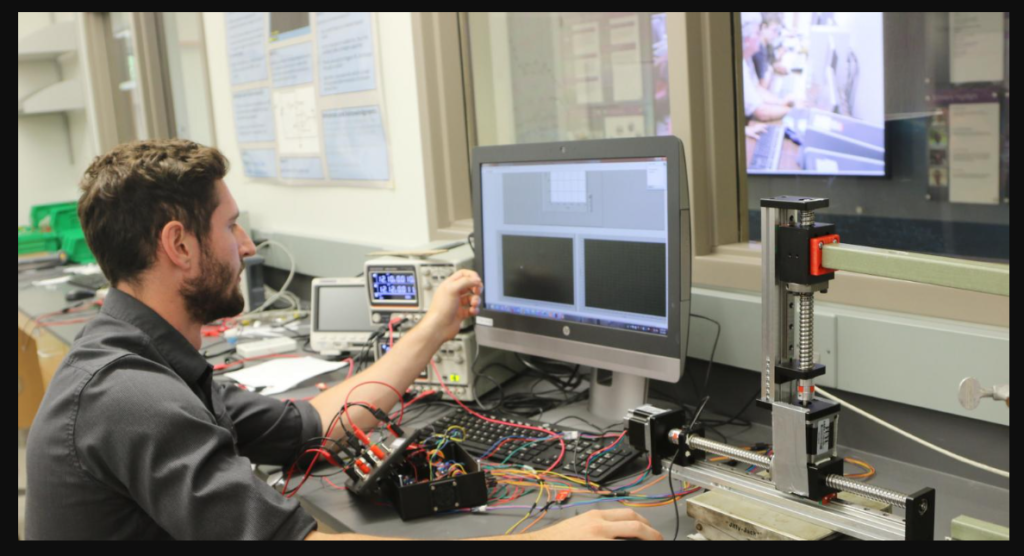Do Electrical Engineers Travel A Lot?
Are you thinking of becoming an electrical engineer? Will the career have you traveling all the time?
Electrical engineering is a fascinating and rewarding field, but it can be tough to know what the day-to-day life of an electrical engineer is like.
The article below will explore the answer to that question and more. So, whether you’re already an electrical engineer or are thinking of becoming one, read on for some interesting insights.
Do Electrical Engineers Move Around a Lot?
You may be wondering if you will have to travel to work as an electrical engineer. The answer to this question is that it depends on several factors. So let’s take a closer look at what determines whether or not an electrical engineer has to travel for work.
What Determines If You Have to Travel?
Several factors determine whether an electrical engineer must travel for work. These include the type of work you do, your role in the company, the size of the company, and your home location.
For example, if you design products built locally and don’t have to meet with customers and management elsewhere, you probably won’t have to travel at all. However, if you are responsible for projects and have to meet with management, marketing, and sales to answer questions and explain the design to customers, you will likely have to travel.
In addition, one can become involved in international matters as an electrical engineer. This may require travel to attend conferences or meet with clients. To some extent, your travel will depend on your role in the company you work for, its size, and your home location.
As an electrical engineer, the amount of travel required for work varies depending on several factors.
What Is The Daily Life Of An Electrical Engineer?

Have you ever wondered what it would be like to be an electrical engineer? Do you have what it takes to become one? Let’s look at a typical day in the life of an electrical engineer to find out.
The first thing you need to know about being an electrical engineer is that no two days are alike. One day you could be working on designing a new device using design software, and the next day you might be problem-solving with your team or going through design plans. So it’s essential to adapt to change and think on your feet.
You’ll also be meeting with clients from time to time. It’s essential to communicate effectively and answer any questions they may have. You should also be able to understand their needs and come up with custom solutions that meet their requirements.
Maintaining maintenance checks and testing devices is also an electrical engineer’s job. This is important to ensure that everything is working correctly and there are no safety hazards.
As you can see, being an electrical engineer is a demanding but rewarding job. So, if you’re up for the challenge, we encourage you to pursue it!
Common Questions Asked About Careers In Electrical Engineering
There are so many unanswered questions about the job field of electrical engineering. We put some of these questions and tried to answer them at our best.
What type of personality is best for an electrical engineer?
Electrical engineers design, develop, and test electrical equipment and systems. They play a vital role in various industries, from automotive and aerospace to communication and computing.
To be successful in this field, an engineer must be able to conceptualize complex problems and develop innovative solutions. They must also be able to effectively communicate their ideas to other engineering team members. In addition, they must be able to work collaboratively to bring these solutions to fruition.
While no single personality type is guaranteed to succeed as an electrical engineer, those who are curious, have critical thinking skills, are creative, can effectively communicate, and have a collaborative spirit are often well-suited to this field.
How many hours do electrical engineers work?
It can be found in various industries, from energy and transportation to manufacturing and healthcare. Given the importance of their work, it’s no surprise that electrical engineers often put in long hours. In fact, according to a recent survey, the average electrical engineer works nearly 40-50 hours per week.
What are the 3 major fields of electrical engineering?
Electrical engineering is a broad field that covers the generation, transmission, and distribution of electrical power and the design of electronic devices and systems. Electrical engineering has three significant subfields: electricity, electronics, and electromagnetism.
Electricity deals with studying electric charges and their interactions with electromagnetic fields. Electronics focuses on the behavior of electronic devices, such as transistors and integrated circuits. Electromagnetism deals with the exchange of magnetic fields with electrically charged particles.
Each of these subfields offers a unique area of specialization for electrical engineers.
rlc talk
Can an electrical engineer make 6 figures?

While it is true that electrical engineers in the power industry in the United States tend to make a good salary, there are others. Many other positions in the power industry pay just as well, if not better.
For example, unionized skilled mechanics and electrical technicians make between $90,000 and $150,000 per year. This is because the power industry is very technical and complex, and these workers are essential to keeping the systems running smoothly.
So, while electrical engineers may make a good salary, others in the power industry do.
FAQs.
Is electrical engineering happy?
Is an electrical engineer better than an electrician?
Electrical engineers typically enjoy higher salaries and more opportunities for innovation and development than electricians do.
Electrical engineers typically have more opportunities for advancement than electricians do.


